Text
https://www.instagram.com/stories/drstanakatic/3686489689322858662?igsh=MXE1cHlsNjNheDIzbw==
Stana. Beckett has some suggestions
#castle#fanfiction#fanfic#fan fiction#castleabc#caskett#kate beckett#richard castle#l’amor des deux lapines
6 notes
·
View notes
Text
Nope. Not on FanFic.Net
Hello Friends:
I've had a couple of curious messages about my work on FanFic.net I have not been on FF.net for many, many years under Polly Lynn or under Hunsdon (a name I used for a brief time in a futile attempt to get some peace). If someone is writing there under those names, well . . . no clue what to do about it, except to reiterate: 'Tis not I.
13 notes
·
View notes
Note
Hi! How can I read your work nowadays?
Most of it is still up at Archive of Our Own:
https://archiveofourown.org/users/Polly_Lynn/works
#castle#caskett#kate beckett#richard castle#fic#Fanfic#Fanfiction#CastleABC#Javier Esposito#Kevin Ryan#Alexis Castle#Martha Rodgers#Roy Montgomery#Victoria Gages#Archive of Our Own
7 notes
·
View notes
Text
instagram
Kate . . .
Castle.For the last time, memes are not admissible in court
#castle#caskett#kate beckett#richard castle#l’amore des deux lapins#chuck the duck#fic#fanfic#fanfiction#Instagram
2 notes
·
View notes
Text
instagram
Castle. Did you stay up all night making memes about Chuck again?
Kate. He haunts me.
#castle#caskett#kate beckett#richard castle#writing#fanfiction#fanfic#fic#fan fiction#there is no duck#Instagram
11 notes
·
View notes
Text
instagram
KB: Javi. I expect this from Ryan . . .
RC: Kate. Let them have this.
20 notes
·
View notes
Text
instagram
Ryan is determined to up Rysposito’s under cover game.
#castle#caskett#kate beckett#richard castle#kevin ryan#Javier Esposito#rysposito#castle abc#Instagram
9 notes
·
View notes
Text
instagram
Ferrous loves to sing with Grandmere
#castle#caskett#kate beckett#richard castle#fanfiction#fic#martha rogers#l’amor des deux lapins#Instagram
3 notes
·
View notes
Text
instagram
Castle is going to be in so much trouble for letting Ryan sleep in his dinosaur costume.
7 notes
·
View notes
Text
instagram
Happy Wednesday from Ferrous.
3 notes
·
View notes
Text

I got a majestic Kevin Ryan for my songwriting sticker this week
8 notes
·
View notes
Text

Jordan Shaw? THE Jordan Shaw??
11 notes
·
View notes
Text
Sending Ryan to Camp Corgo was the right move, Kate. Cc @coraclavia
https://www.instagram.com/reel/Cw2aftupGYc/?igshid=MzRlODBiNWFlZA==
5 notes
·
View notes
Text
instagram
Kate!! Ryan is in SERIOUS trouble. Bring all your police-y stuff. Cc @coraclavia
#castle#caskett#kate beckett#richard castle#writing#kevin ryan#l’amour des deux lapins#there is no duck#Instagram
9 notes
·
View notes
Text
instagram
Ryan just wants Esposito to hear out his undercover plan @coraclavia
32 notes
·
View notes
Text
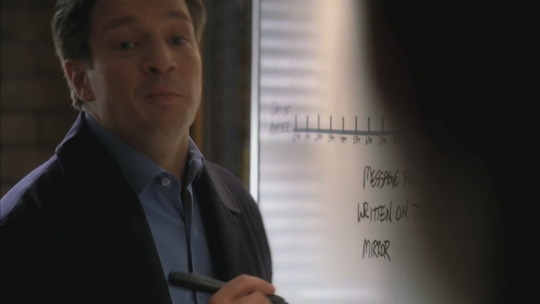
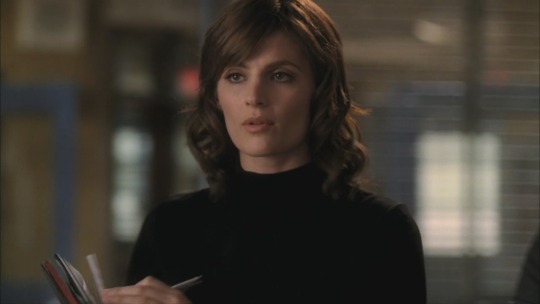
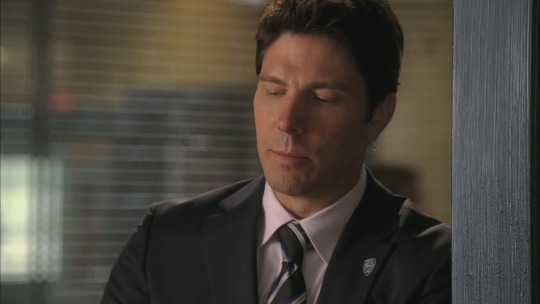
Title: Innominate WC: 900
“Maybe there’s more going on than just a tryst.” —Richard Castle, Overkill (2 x 23)
Demming is not her boyfriend. Tom is not . . . Tom Demming is not her boyfriend. For one thing, she is a grown woman, and grown women don’t have boyfriends. They have . . . guys they are . . . seeing—guys whom they don’t know what to call. And if they’re grown women who are also cops, they doubly don’t know what to call them, because there’s the name thing and there’s the label thing.
The name thing is bad enough. For her, it’s bad enough. For him—Tom. Demming. Whatever.—it doesn’t seem so bad. He calls her Kate with no trouble at all. Over coffee, it’s Kate. When he’s handing her into the cab they’re sharing, it’s Kate. When he kisses her outside the glass door to the lobby of her building, it’s Goodnight, Kate.
It makes her jump every time.
She is Katie to her dad, to her overbearing aunts and uncles and cousins. She is—as she’s only just recently been reminded—Bex to the people who knew her before, to the people who mostly bought the act and thought she was cool back in the day. She was, for all too brief a time, Kate to her mom, who at least made the effort in the early days of the most insufferable version of Bex, when she decided she would never again answer Katie. And now she is Kate to Demming. Tom. Tom Demming, who is not her boyfriend.
To his credit, he calls her Beckett, too. Because he’s a cop. He’s a colleague. He has expertise that just happens to have been relevant to a few of her most recent cases, and that expertise extends to knowing that she’s Beckett at work. When it’s at the board and not over coffee. When he’s holding the door from the precinct lobby out on to the street, and not handing her into the cab they’re sharing—it’s Beckett then.
It’s probably not worthy of a gold star, the fact that he knows what to call her and when and where to call her by one name or the other. It’s probably not worthy of comment, except that she doesn’t know what to call him. Or, rather, she does. It’s obvious, and even if it weren’t, she has his example to follow, doesn’t she? She knows the what, where, and when of what she should call him, but it doesn’t come easily.
The tip of her tongue touches the roof of her mouth to make the T in Tom, but it hesitates. It backpedals to a D, and she’s caught up in a Detective Demming spiral at the most inappropriate moments. Or she stalls out entirely, trailing off into something along the lines of oh, you. She tries to make a joke of it—the fact that she trips over what name to call him every single time. He tries to take it that way, but it has to be obvious that neither of his names comes easily to her.
And the issue of labels is worse. He doesn’t call her his girlfriend. Actually, she does not know this for a fact. But she is of the opinion that he had better fucking not be calling her his girlfriend. She is also of the opinion, if she is being honest with herself (she is not sure that being honest with herself is on the table when it comes to any of this), that the way the very thought of him calling her his girlfriend pegs her rage meter is . . . notable. It is possibly not entirely explained by the fact that she is a grown woman and a cop and she is not anyone’s girl-anything.
It is possibly entirely explained by Richard Castle and the conclusions he is oh-so-sorry to have jumped to. Despite her stammering—regardless of the wandering tip of her tongue when it comes to calling another man by his name (any of his names)—Richard Castle is almost certainly the one wholly responsible for the spike in her blood pressure as her mind manufactures scenarios in which Tom Demming—Detective Not Boyfriend—might be casually referring to her using the G-word.
Demming is a Robbery detective, and a good one at that. Demming has a professional network almost entirely different from her own. Demming has perspective on cases that’s different from her own, but rooted in training and actual investigative experience—not wild speculation and a disdain for logic, unlike some people she could (much more easily) name.
Detective Demming is the man she’s called in to consult of late, and how dare Castle question that? How dare he imply that she would ever—ever—invent lines of investigation, just so that she could see the guy she happens to be . . . seeing? That guy—whatever anyone wants to call him—is not the guy who gets to write on the murder board. He’s not the guy who gets to tag in on her interrogations.
He’s the guy who’s been showing up for coffee, who holds doors and hails cabs, who kisses her on the stoop outside her lobby, because they are not at the Why don’t you come up? stage. Not at her place, anyway. Not yet. Or maybe not ever.
She doesn’t know. She doesn’t have to know what to call him or when to invite him up. (If ever.)
And it’s none of his—of Richard Castle’s—business.
A/N: She soooo wants to deny that Demming is her boyfriend.
images via homeofthenutty
#castle#caskett#Castle: Season 2#Castle: Overkill#Castle: 2 x 23#Kate Beckett#Richard Castle#Lanie Parish#Johanna Beckett#Alexis Castle#Martha Rodgers#Kevin Ryan#Javier Esposito#Jim Beckett#Roy Montgomery#Fic#Fanfic#Fanfiction#Fan Fiction#Writing#Fabrications
23 notes
·
View notes
Text
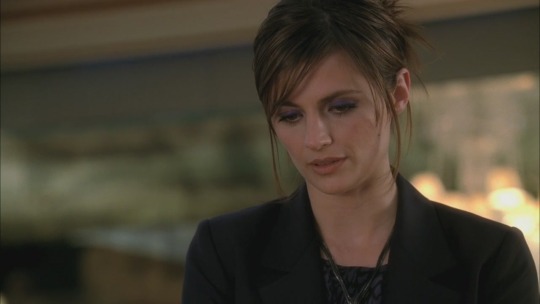
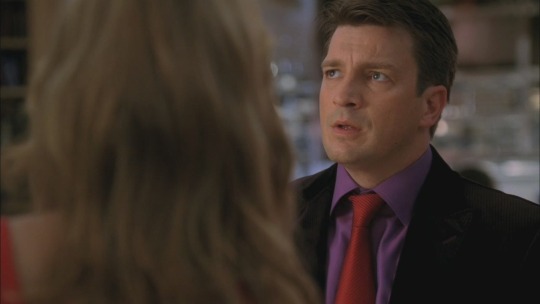
Title: Misdeem WC: 950
“I don’t see it going anywhere.” —Richard Castle, Food to Die For (2 x 22)
There are times when he’d like to be a liar. This probably does not exactly set him apart from the masses. Who is out there walking around, drawing breath and sighing it back out again who hasn’t wished they’d been a liar at one time or another? Who hasn’t had a friend solicit reactions a truly hideous new outfit and desperately tried to sell a sincere It’s fantastic! only to have their own stupid, truth-telling face nuke the little white lie from orbit? Doesn’t he—day in and day out—sit across the table from self-tattling morons who’d like nothing more than to lie their way right out of the interrogation room? He might be—he clearly is—in bad company, but he would very much like to be a liar right now.
Beckett didn’t seem to mind.
His mother thinks he’s lying. His daughter probably would think he was lying if she had any attention to spare. And it’s not even that he wants to be lying. It should be a lie. That’s the agony of it.
She should mind. That’s the way of things. This whole Richard Castle: Moral Support for Hire gambit should be one in a long line of his fool-proof plans to get her goat—to make her mind.
But she doesn’t mind. It’s not a problem. He’s telling the truth, and he’s not even getting credit for it. Not from his mother, who is pursing her lips and shaking her head as she sourly reminds him that he should be getting ready for his date.
He doesn’t want credit, though, not in this instance, and certainly not for this truth. He wants to be the rogue his mother thinks he is—the one his daughter would think he is, if she weren’t, herself, so torn between duty and desire. He wants to be the Hamptons, the seductive allure of fun in the sun that makes Beckett forget all about the microscope-requiring AP exam that is Tom Demming. But he’s not the Hamptons. Or Beckett is not tempted by the beach. Or something.
It’s a cavalcade of lousy metaphors, so he doffs his gloves and goggles. He extracts a spare watch from somewhere and he picks out a shirt in a color that she likes on him. Or a week ago he’d have said it was a color she liked on him, but apparently he’s no judge at all of what Kate Beckett likes or doesn’t like. That is the only explanation for the fact that she’ll be toting her microscope and slides all over town tonight, completely unperturbed by the thought that he will be out on the town, raconteuring his way through the celebrity chef world with one of her high school gang.
There’s a moment when she bursts on the five-star dinner scene that he thinks she’s come to make a liar out of him. He very nearly chokes on whatever it is he’s eating at the moment and weakly, hopefully demands to know: Beckett, what are you doing here?
He has the answer. He’d happily write it for her. He’d set her up with anything from cue cards to index cards to a state-of-the-art teleprompter, if she’d only read the lines with conviction: I’m here for you. I’m here because I couldn’t stand the thought of this. I’m here because it is a problem, and I do mind.
But that isn’t the answer, of course. She is not interested in cue cards, index cards, or his writing services in any medium. She is not there for him or because she minds or it’s a problem. She’s there for case-related purposes, because the only struggle for her is the one between duty and more duty.
He tries to work himself up to play the part everyone expects—the one she expects. He makes a respectable showing of it. He whines at length about the food of which she has cruelly deprived him and her good friend Madison. He accuses her of being uncivilized. He has another nanosecond’s worth of a thrill when she bans him from the interrogation. He parses the words giggling over the risotto with our suspect up, down, and sideways, searching for vindication—for the indisputable evidence that he’s been a liar after all, but it isn’t there.
She’s hissing, red-faced, and thoroughly embarrassed by Madison’s Castle baby fantasy, but it’s . . . generic embarrassment. Or worse, it’s embarrassment for his sake—that he’d play a role in such an outlandish fantasy, or maybe that he’ll get the wrong idea? She’s avoidant when he tries to get her goat with a reprise of the Castle baby fantasy, but it’s . . . impersonal. She wants to get on with the case and back to her date with duty. There isn’t a shred of evidence that she hopped in the Fun Police Wagon and drove it down to Rocco DiSpirito’s place because she’s bothered by the fact that he was out with Madison.
He wonders how it’s come to this. He wonders when, because he could have sworn that she minded when he had his ten-second fling with Ellie Monroe, when he was on the radar of Bachelorette Number 3. He would have laid money on it being a problem when Rina scrawled her digits across his palm, when Lee Waxman wanted to trade favors, and when Meredith and the Crazy-Sex Train blew through town. He’s positive that she has minded virtually every woman who has so much as given him a second glance over the last year or so.
But Madison? She doesn’t mind. It’s not a problem, because she, herself, has ‘Something’.
That’s the truth and he’d so much rather be a liar.
A/N: Oof. This was ornery; and I didn't think this was the lie that would drive the story. Blegh.
images via homeofthenutty
#castle#Caskett#Castle: Season 2#Castle: Food to Die For#Castle: 2 x 22#Kate Beckett#Richard Castle#Martha Rodgers#Alexis Castle#Lanie Parish#Johanna Beckett#Javier Esposito#Kevin Ryan#Roy Montgomery#Jim Beckett#fanfic#fan fiction#Fanfiction#Writing#Fabrications#fic
32 notes
·
View notes